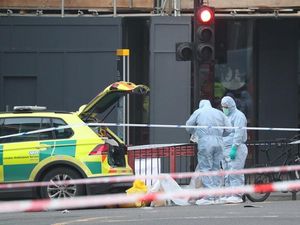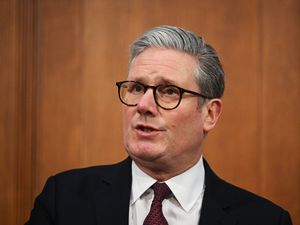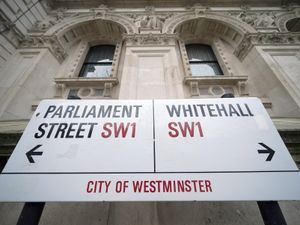Government ‘warned of risk’ of terrorists released from prison
Prime Minister Boris Johnson has said the ‘system simply isn’t working’.

The Government was repeatedly warned of the risk posed by convicted terrorists being released from prison while still radicalised, a former chief crown prosecutor has said.
Nazir Afzal said he raised the issue in a private conversation with Boris Johnson three years before he became Prime Minister – but was told there was no money.
The former chief prosecutor for North West England spoke out as Mr Johnson said the “system simply isn’t working” after Usman Khan, 28, killed two people and injured three others in a knife rampage before being shot dead on London Bridge on Friday.
The convicted terrorist had been automatically freed from prison on licence in December 2018, having served half his 16-year sentence.
Speaking at the scene on Saturday, Mr Johnson said: “I’ve argued that when people are sentenced to a certain number of years in prison they should serve every year of that sentence.”
He added: “I’ve said for a long time that I think that the practice of automatic early release – where you cut a sentence in half and let really serious violent offenders out early – simply isn’t working.
“And I think you have good evidence of how that isn’t working, I’m afraid, with this case.”
Asked if he could reassure the public that they are safe if other convicted terrorists are out on licence, Mr Johnson said: “Well I can tell you that we’ve had a long discussion already today about all those cases and a great deal of work is being done right now to make sure that the public is protected.”
A Guardian analysis of figures compiled by the Sentencing Council published in June last year showed police and security forces face a surge in the number of terrorists being released from prison.
It said more than 80 of the 193 terms issued for terrorism offences between 2007 and 2016 would have been served by the end of 2018.
Mr Afzal said: “The problem of those convicted for terrorist-related offences being released from prison whilst ostensibly rehabilitated but still radicalised was one that many of us raised in meetings with this Government over the past few years.”
He said he spoke to the PM on June 30 2016 at a 50th anniversary function at Brunel University, in Uxbridge, west London, which Mr Johnson was attending as the local MP.
Mr Afzal said: “He asked me what keeps me awake at night and I told him it was this issue. When he wanted to know what to do about it, I told him it was more resources for one-to-one deradicalisation.
“Back then, he hadn’t found the ‘money tree’ so he frustratingly said there was no money.”
In August, Boris Johnson ordered an urgent review of sentencing policy, saying that dangerous criminals must be taken off the streets and punishments “truly fit the crime” if the public was to have confidence in the justice system.
The sentencing review was instructed to start work immediately and to report back to No 10 in the autumn.
Downing Street has confirmed that advice was submitted to the Prime Minister in October, which led to the Sentencing Bill being announced in the Queen’s Speech.
A Downing Street spokeswoman said this has been delayed due to the election, and future decisions will be a matter for the next government.
The advice was internal and has not been published, she added.
Chris Phillips, a former head of the UK National Counter Terrorism Security Office, said: “We’re letting people out of prison, we’re convicting people for very, very serious offences and then they are releasing them back into society when they are still radicalised.
“So how on Earth can we ever ask our police services and our security services to keep us safe?
“I’ve said it a few times today, we’re playing Russian roulette with people’s lives, letting convicted, known, radicalised Jihadi criminals walk about our streets.”





